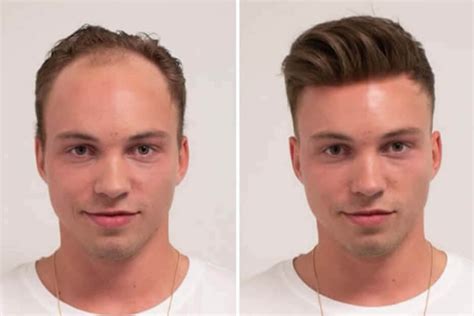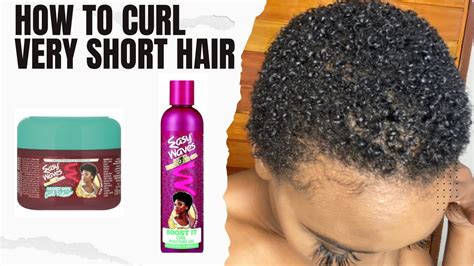What is a Curly Hair Relaxer?
A curly hair relaxer is a chemical treatment that alters the structure of the hair, making it straighter, smoother, and less prone to frizz. It works by breaking down the hair’s disulfide bonds, which are responsible for its curl pattern.

How Does a Curly Hair Relaxer Work?
The active ingredient in most curly hair relaxers is sodium hydroxide, which is a strong alkali. When applied to the hair, sodium hydroxide breaks down the disulfide bonds, causing the hair to stretch and relax. This process can take anywhere from 30 minutes to several hours, depending on the type of relaxer used and the texture of the hair.
Types of Curly Hair Relaxers
There are two main types of curly hair relaxers:
- No-lye relaxers do not contain sodium hydroxide. Instead, they use other chemicals, such as calcium hydroxide or guanidine hydroxide, to break down the disulfide bonds. No-lye relaxers are generally gentler than lye relaxers, but they can also be less effective.
- Lye relaxers contain sodium hydroxide. They are more powerful than no-lye relaxers and can produce straighter results. However, they can also be more damaging to the hair.
Benefits of Using a Curly Hair Relaxer
Using a curly hair relaxer can offer several benefits, including:
- Straighter hair: Curly hair relaxers can make the hair straighter, smoother, and less prone to frizz.
- Reduced tangling: Straightened hair is less likely to tangle, making it easier to comb and style.
- Easier to manage: Straightened hair is easier to manage than curly hair, making it ideal for people who are short on time or have limited styling skills.
- More versatile: Straightened hair can be styled in a variety of ways, giving you more options for your look.
Drawbacks of Using a Curly Hair Relaxer
While curly hair relaxers can offer several benefits, there are also some drawbacks to consider, including:
- Damage to the hair: Curly hair relaxers can damage the hair, making it more prone to breakage and split ends.
- Scalp irritation: Curly hair relaxers can irritate the scalp, causing itching, redness, and burning.
- Allergic reactions: Some people are allergic to the chemicals used in curly hair relaxers.
- Time-consuming: Curly hair relaxers can be time-consuming to apply, especially for people with long or thick hair.
- Expense: Curly hair relaxers can be expensive, especially if you need to get them done regularly.
Who Should Use a Curly Hair Relaxer?
Curly hair relaxers are not for everyone. They are best suited for people with curly or coily hair who want to achieve a straighter look. However, it is important to weigh the benefits and drawbacks before deciding whether or not to get a curly hair relaxer.
How to Choose the Right Curly Hair Relaxer
If you are considering getting a curly hair relaxer, it is important to choose the right one for your hair type. Here are a few things to consider:
- The texture of your hair: No-lye relaxers are best for people with fine or medium-textured hair. Lye relaxers are best for people with thick or coarse hair.
- Your desired results: If you want to achieve a very straight look, you will need to use a lye relaxer. If you only want to reduce frizz and make your hair more manageable, you can use a no-lye relaxer.
- Your budget: Lye relaxers are typically more expensive than no-lye relaxers.
How to Apply a Curly Hair Relaxer
If you are applying a curly hair relaxer at home, it is important to follow the instructions carefully. Here are the general steps:
- Wash your hair with a clarifying shampoo to remove any dirt or oil.
- Protect your skin around your hairline with petroleum jelly.
- Apply the relaxer to your hair, starting at the roots.
- Cover your hair with a plastic cap and let it sit for the amount of time specified in the instructions.
- Rinse your hair thoroughly with water and apply a neutralizing shampoo.
- Condition your hair to help restore moisture.
How to Care for Relaxed Hair
Once you have relaxed your hair, it is important to take care of it properly to prevent damage. Here are a few tips:
- Use a gentle shampoo and conditioner. Relaxed hair is more prone to damage, so it is important to use products that are gentle and moisturizing.
- Avoid heat styling. Heat styling can damage relaxed hair, so it is best to avoid using heat tools as much as possible.
- Get regular trims. Regular trims will help to prevent split ends and keep your hair healthy.
Conclusion
Curly hair relaxers can offer several benefits, including straighter hair, reduced tangling, and easier manageability. However, it is important to weigh the benefits and drawbacks before deciding whether or not to get a curly hair relaxer. If you do decide to get a relaxer, be sure to choose the right one for your hair type and follow the instructions carefully. With proper care, you can enjoy the benefits of relaxed hair for years to come.
Frequently Asked Questions
- How often should I get a curly hair relaxer?
- The frequency with which you need to get a curly hair relaxer will depend on the type of relaxer you use and the texture of your hair. No-lye relaxers typically need to be reapplied every 6-8 weeks, while lye relaxers can last for 12-16 weeks.
- Can I relax my hair myself?
- Yes, you can relax your hair yourself. However, it is important to follow the instructions carefully and to take precautions to avoid damage to your hair or scalp.
- What are the alternatives to curly hair relaxers?
- There are several alternatives to curly hair relaxers, including keratin treatments, Japanese hair straightening, and thermal reconditioning.
